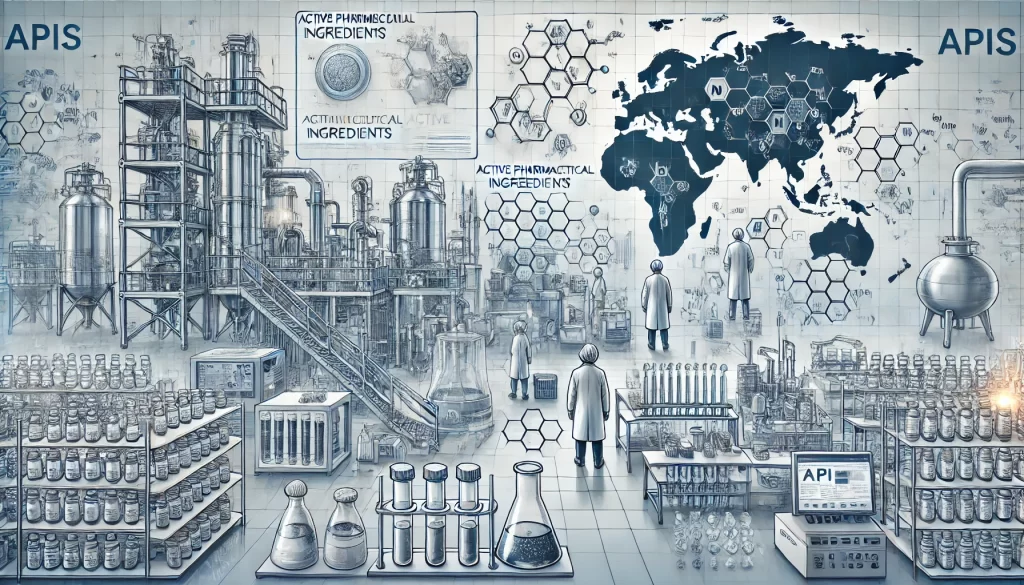Active Pharmaceutical Ingredients (APIs) are fundamental to the pharmaceutical industry, as they are the core components responsible for the therapeutic effects of medications.
Here’s why APIs are crucial:
1. Therapeutic Efficacy:
- APIs are the active substances in drugs that produce the intended effects, such as pain relief, infection control or disease management. Without APIs, medications would not be effective.
2. Quality and Safety:
- The quality of APIs directly affects the safety and efficacy of the final pharmaceutical product. High standards in API manufacturing ensure that medications meet regulatory requirements for purity, potency and stability minimizing risks of side effects or treatment failure.
3. Innovation and Drug Development:
- APIs are at the heart of drug innovation. The Discovery and Development of new APIs lead to the creation of new treatments for various conditions including previously untreatable or poorly managed diseases.
- The modification of existing APIs can also improve drug properties, such as reducing side effects, enhancing absorption or targeting specific tissues.
4. Cost Efficiency:
- Efficient API synthesis and production can significantly reduce the overall cost of medications, making them more accessible to patients. This is particularly important for generic drugs where cost control is crucial for market competitiveness.
5. Regulatory Compliance:
- APIs must comply with stringent regulatory standards (e.g., GMP, ICH guidelines). These regulations ensure that only APIs that meet rigorous safety, quality and efficacy criteria are used in drug products.
- Compliance with these standards protects public health and ensures that medications work as intended.
6. Supply Chain Security:
- APIs are a critical component of the pharmaceutical supply chain. Disruptions in API supply, such as those caused by geopolitical issues, natural disasters or quality control failures can lead to drug shortages.
- Ensuring a reliable supply of high-quality APIs is essential for maintaining the availability of essential medications worldwide.
7. Customization and Personalization:
- APIs allow for the customization of treatments such as in personalized medicine, where drugs are tailored to the genetic profile or specific needs of an individual patient. This is especially important in oncology and other fields where personalized approaches improve treatment outcomes.
8. Biologics and Biosimilars:
- The development of APIs is not limited to small molecules; it also encompasses biologics (large, complex molecules like proteins or antibodies) and biosimilars. These APIs are at the forefront of treating complex conditions like cancer, autoimmune diseases and chronic conditions.
9. Global Market Dynamics:
- APIs play a significant role in the global pharmaceutical market. Countries like India and China are major API producers and shifts in this market can have global impacts on drug availability and pricing.
10. Environmental Impact and Sustainability:
- The synthesis and manufacturing of APIs are increasingly focusing on sustainability. Green chemistry and environmentally friendly processes are being adopted to reduce the environmental footprint of API production.

API Industry
APIs are the cornerstone of the pharmaceutical industry, underpinning every aspect of drug development, manufacturing, and patient care. Their importance extends beyond just the therapeutic effect—they are integral to the safety, effectiveness, and availability of medications worldwide.
